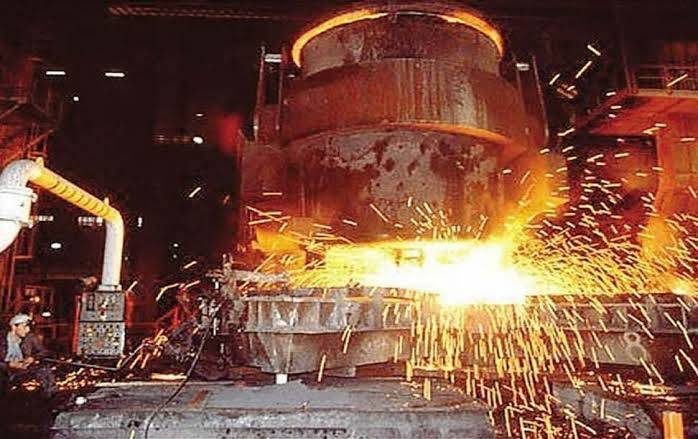Pakistan's economic woes worsen as Pakistan Steel Mills incurred billions in losses
Shares

The Economic Coordination Committee (ECC) of the Cabinet convened in Islamabad on Tuesday. During the meeting, it was revealed that Pakistan Steel Mill (PSM) has incurred accumulated losses of Rs 206 billion as of June 30, 2022.
Dr. Shamshad Akhtar, the Caretaker Federal Minister for Finance, Revenue, & Economic Affairs, chaired the ECC meeting. The Ministry of Industries and Production presented a summary seeking approval for the projected net salary payment for PSM employees in the Fiscal Year 2023-24.
PSM, a government-owned entity, has been accumulating losses since 2008-09, reaching Rs 206 billion by June 30, 2022. Due to production suspension since June 2015, the government has been funding employee salaries since 2013, and PSM lacks sufficient financial resources to cover these costs.
To address this issue amid the privatization process, the government has already retrenched 5679 employees, with around 3100 currently employed. However, even with reduced salaries from Rs 360 million per month to approximately Rs 104 million per month, PSM cannot meet this obligation.
The Ministry of Industry and Production requested ECC approval for a projected net salary payment of Rs 1.24 billion for the Fiscal Year 2023-24, sourced from the allocated budget of Rs. 10 billion. After thorough discussion, ECC authorized the Finance Division to approve the first 6 months' projected net salary payments from the existing budgetary allocation.
Furthermore, the Ministry of Planning, Development, and Special Initiatives presented information on major economic indicators and food price trends. ECC instructed the Ministry of National Food Security and Research to submit regular reports on staple item availability, consumption, and pricing, specifically for Wheat and Sugar.
ECC also directed the Ministry of Planning, Development, & Special Initiatives to control excessive profiteering and maintain price transparency between wholesale and retail prices of essential food items through collaboration with Chief Secretaries. Additionally, the Ministry of Energy discussed the transition from London InterBank Offer Rate (LIBOR) to Secured Overnight Financing Rate (SOFR).
IPPs and lenders have approached the Private Power and Infrastructure Board (PPIB) for this transition due to the discontinuation of LIBOR as a benchmark for financial transactions. ECC approved the proposal, with NEPRA working on tariff determination/indexation mechanism amendments related to SOFR, effective from July 1, 2023. The Ministry of Energy was tasked with providing a detailed financial analysis of this decision in the next ECC meeting for discussion and approval.
